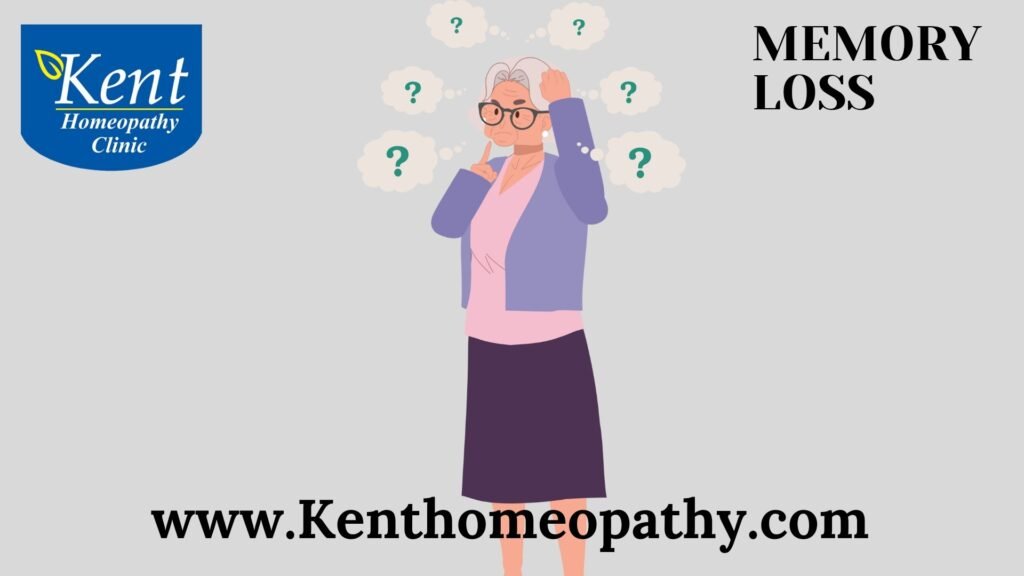Memory loss

Memory Loss: Unraveling Symptoms, Causes, and Types
Memory loss, or amnesia, refers to the inability to recall information that is stored in the brain. It can vary in severity and may be temporary or permanent. Understanding the symptoms, causes, and types of memory loss is essential for accurate diagnosis and appropriate management.
Symptoms:
- Forgetfulness: The most common symptom of memory loss is forgetfulness. Individuals may experience difficulty remembering recent events, names, faces, or details of conversations.
- Difficulty Learning: Memory loss can affect the ability to learn new information. Individuals may struggle to retain and recall recently acquired knowledge or skills.
- Confusion: Memory loss can lead to confusion, especially about time, place, or the sequence of events. Individuals may become disoriented or have trouble recognizing familiar surroundings.
- Impaired Short-Term Memory: Short-term memory may be particularly affected. Forgetting where one placed an item or what was said or done recently are common manifestations.
- Language Difficulties: Memory loss can impact language skills, resulting in difficulty finding the right words or expressing oneself coherently.
- Mood Changes: Memory loss may be accompanied by mood changes, including frustration, anxiety, or depression, especially when individuals struggle with their inability to remember.
- Repetition: Individuals with memory loss may repeat the same questions or stories, not realizing that they have shared the information before.
- Inability to Perform Routine Tasks: Memory loss can affect the ability to perform everyday tasks, such as cooking, driving, or managing finances.
Causes:
- Normal Aging: Mild memory loss is a common part of the aging process. As individuals grow older, they may experience age-related changes in cognitive function, including memory.
- Medications: Some medications, including certain antidepressants, antihistamines, and medications for sleep or anxiety, can cause memory loss as a side effect.
- Vitamin Deficiencies: Deficiencies in certain vitamins, such as B12 and thiamine, can lead to memory loss. These vitamins are essential for proper brain function.
- Stress and Anxiety: Chronic stress and anxiety can affect memory and cognitive function. High levels of stress hormones can interfere with the formation and retrieval of memories.
- Alcohol and Substance Abuse: Excessive alcohol consumption and substance abuse can impair memory function. Chronic alcoholism, in particular, can lead to a condition known as Wernicke-Korsakoff syndrome, characterized by severe memory deficits.
- Head Injuries: Traumatic brain injuries, concussions, or other head injuries can result in memory loss. The severity and duration of memory loss depend on the extent of the injury.
- Neurodegenerative Diseases: Progressive neurodegenerative diseases, such as Alzheimer’s disease, Parkinson’s disease, and frontotemporal dementia, can lead to significant memory impairment.
- Stroke: A stroke occurs when blood flow to the brain is disrupted. Depending on the location and severity of the stroke, it can result in memory loss.
- Brain Tumors: Tumors in the brain can affect memory function, depending on their location and impact on surrounding brain tissue.
- Infections: Certain infections that affect the brain, such as encephalitis or meningitis, can cause memory loss.
- Hormonal Changes: Hormonal changes, such as those associated with thyroid dysfunction or hormonal imbalances, can impact memory function.
Types:
- Anterograde Amnesia: This type of memory loss refers to difficulty forming new memories after the onset of amnesia. Individuals may have intact memories from the past but struggle to create new ones.
- Retrograde Amnesia: Retrograde amnesia involves the inability to recall memories that occurred before the onset of amnesia. It can be selective, affecting specific periods of time or events.
- Transient Global Amnesia (TGA): TGA is a temporary and sudden episode of memory loss. During an episode, individuals may have difficulty forming new memories and may be unable to recall recent events. TGA typically resolves on its own, and the cause is often unclear.
- Post-Traumatic Amnesia (PTA): PTA occurs after a traumatic brain injury and involves a period of memory loss following the injury. The duration of PTA varies depending on the severity of the injury.
- Psychogenic Amnesia: Psychogenic amnesia is a rare form of memory loss that is thought to be related to psychological factors, such as trauma or severe stress. Individuals may selectively forget specific events or aspects of their identity.
- Mild Cognitive Impairment (MCI): MCI is characterized by noticeable memory problems that are greater than expected for age but not severe enough to interfere significantly with daily life. MCI can be a precursor to more serious conditions like Alzheimer’s disease.
- Alzheimer’s Disease: Alzheimer’s disease is a progressive neurodegenerative disorder that leads to significant memory loss, cognitive decline, and impairment of daily functioning.
- Vascular Dementia: Vascular dementia results from impaired blood flow to the brain, often due to strokes or other vascular issues. Memory loss is a common symptom, along with other cognitive deficits.
Contact to know more
Contact
Powai: 52, Galleria Mall,
Central Avenue, Hiranandani Gardens,
Powai, Mumbai-400076
Mobile Number: 08291492566
Timings
Monday to Saturday:
11:00 AM to 02:30 PM
06:30 PM to 09:00 PM
